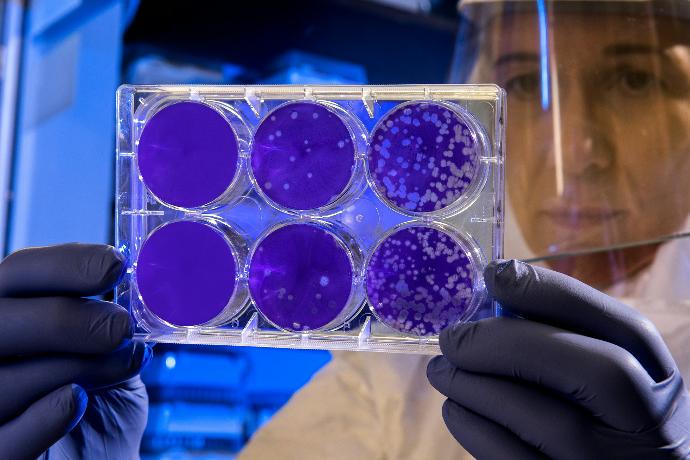Research
- Home >
- Technologies >
-
In vitro generation and isolation of hematopoietic stem cells from embryonic ste ...

RESEARCH
In vitro generation and isolation of hematopoietic stem cells from embryonic stem cells
The focus of this research proposal is to understand how to direct embryonic stem cells (ESCs) and reprogrammed or induced pluripotential stem cells (iPSCs) to generate blood forming stem cells in a tissue culture dish. The experiments in this proposal are based on recent findings from the Keller laboratory that have identified a cell type that can make most of the different types of blood cells, suggesting that it could represent the earliest blood forming stem cell. The studies proposed in the first part of this application will further characterize these cells to determine if they are truly blood forming stem cells. The studies outlined in the second part of the application are aimed at identifying strategies that will enable us to generate large numbers of blood-forming stem cells from these different pluripotent stem cell populations. While the application is focused on mouse ESCs, I anticipate that the findings will be easily translated to human cells. The outcome of these studies has a number of important implications for improving public health. First, understanding how blood-forming stem cells are generated from ESCs and iPSCs will provide a novel and unlimited source of these cells for transplantation. Transplantation of blood-forming stem cells is a routine proven treatment for certain types of leukemia and blood cell disorders. Being able to generate unlimited numbers of these cells will significantly expand the patient pool that can be treated by transplantation. Second, the ability to recreate blood formation in a petri dish from ESC and iPSCs provides an unprecedented opportunity to study and identify the causes of blood cell disease such as leukemia and certain types of anemias.

To view more project details and submit an expression of interest
Explore more projects
Solutions to Business Technological Challenges
-
RESEARCH
01 Jan 2024
-
-


